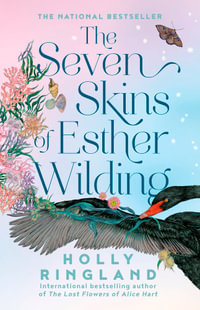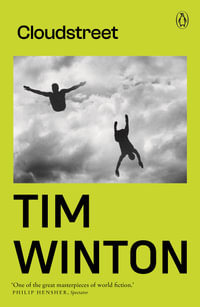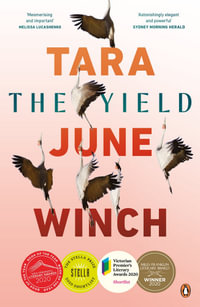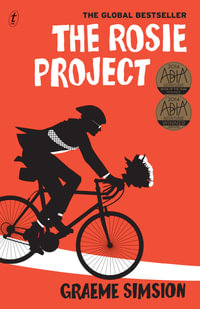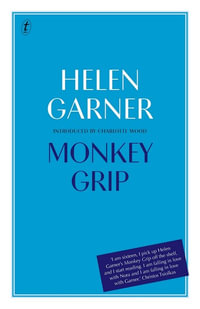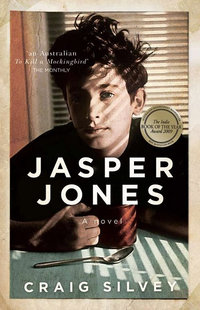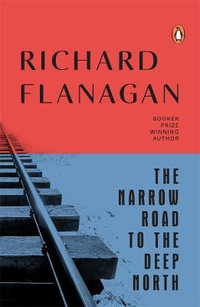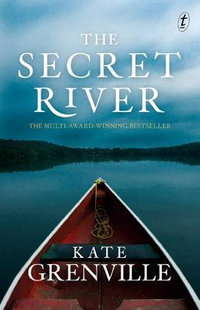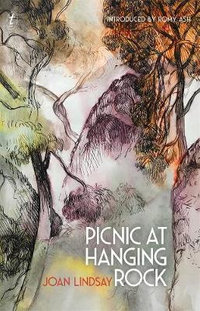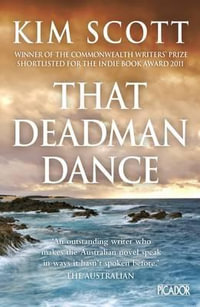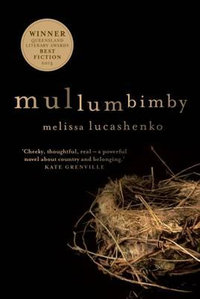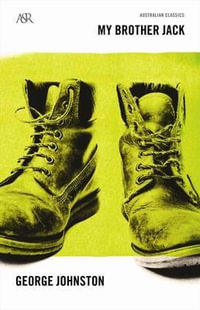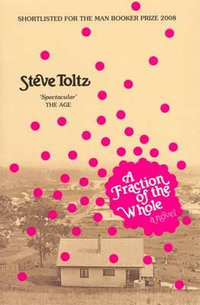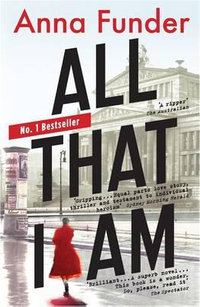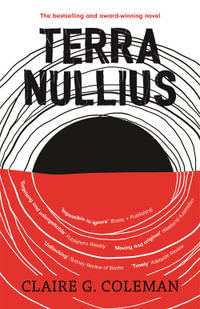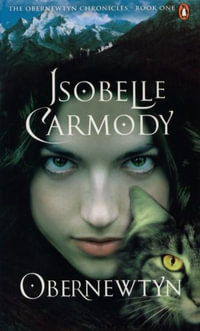
The Merry-Go-Round In The Sea : Popular Penguins
By: Randolph Stow
Paperback | 29 June 2009 | Edition Number 1
At a Glance
416 Pages
18.5 x 12 x 3.5
Paperback
$14.99
or 4 interest-free payments of $3.75 with
Aims to ship in 5 to 10 business days
When Rick returns several years later, he has changed and the old merry-go-round that represents Rob's dream of utopia begins to disintegrate before his eyes.
The Merry-Go-Round in the Sea allows us a precious glimpse into a simpler kind of childhood in a country that no longer exists.
Author Biography
Acknowledged as one of Australia's finest writers, Randolph Stow was born in Geraldton, Western Australia in 1935. He graduated from the University of Western Australia and lectured in English at the Universities of Adelaide, Western Australia and Leeds. In addition to his writing, Randolph worked as a teacher and sometime anthropologist and for many years he lived in Sussex, England (his ancestral home). His works included novels, plays, poetry and children's books.
His best-known novels include To the Islands (one of the first books published by Penguin in Australia, in 1963), Tourmaline, and what many regard as his finest work, The Merry-Go-Round in the Sea. He also wrote the hugely popular children's novel, Midnight. Stow was awarded the Miles Franklin Award for To the Islands, and in 1979 he was awarded the Patrick White Award. Randolph Stow died in May 2010 at the age of 74.
When the merry-go-round was moving it grated under its collar. But now it was still, there were no children playing about it, only the one small boy who had climbed out of the car by the curb and stood studying the merry-go-round from a distance, his hands jammed down inside the waistband of his shorts.
Under his sandals, leaves and nuts fallen from the Moreton Bay figtrees crunched and popped. Beyond the merry-go-round was the sea. The colour of the sea should have astounded, but the boy was seldom astounded. It was simply the sea, dark and glowing blue, bisected by seagullgrey timbers of the rotting jetty, which dwindled away in the distance until it seemed to come to an end in the flat-topped hills to the north. He did not think about the sea, or about the purple bougainvillaea that glowed against it, propped on a sagging shed. These existed only as the familiar backdrop of the merry-go-round. Nevertheless, the colours had entered into him, printing a brilliant memory.
He went, scuffing leaves, to the merry-go-round, and hanging his body over the narrow seat he began to run with it, lifting his legs from the ground as it gained momentum. But he could not achieve more than half a revolution by this means, and presently he stopped, feeling vaguely hard-used.
His mother was in the Library, getting books. He could see her now, coming out on to the veranda. The Library was a big place with an upstairs. It used to be the railway station in the Old Days, which made it very old indeed. In fact, everything about the merry-go-round was old, though he did not know it. Across the street the convict-built courthouse crumbled away sunflowers sprouting from the cracked steps. The great stone barn at the next corner was Wainwright's store, where the early ships had landed supplies. That, too, was crumbling, like the jetty and the courthouse and the bougainvillaea-torn shed, like the upturned boat on the foreshore with sunflowers blossoming through its ribs.
The boy was not aware of living in a young country. He knew that he lived in a very old town, full of empty shops with dirty windows and houses with falling fences. He knew that he lived in an old, haunted land, where big stone flour-mills and small stone farmhouses stood windowless and staring among tvvisted trees. The land had been Young once, like the Sleeping Beauty but it had been stricken, like the Sleeping Beauty, with a curse, called sometimes the Depression and sometimes the Duration, which would never end, which he would never wish to end, because what was was what should be, and safe.
He stood by the merry-go-round, watching his mother. She went to the car and opened the door, putting her books in. Then she looked up, anxious.
'Here I am,' he called.
'You're a naughty boy,' she said. 'I told you to stay in the car.'
'I want a ride,' he said, 'on the merry-go-round.'
'We haven't time,' said his mother. 'We're going to Grandma's to pick up Nan and then we're going to the beach.'
'I want a ride,' he said, setting his jaw.
She came towards him, giving in, but not meekly. 'Don't scowl at me, Rob,' she said. She had curly brown hair, and her eyes were almost as blue as the sea.
He stopped scowling, and looked blank. He had blue eyes like hers, and blond hair which was darkening as he grew older, but was now bleached with summer. Summer had also freckled his nose and taken some of the skin off it. When he squinted he could see shreds of skin on his nose where it was peeling.
'Lift me up,' he said.
His mother stooped and lifted him to the seat of the merry-go-round. 'Oof,' she said. 'You are getting heavy.'
'Aunt Kay lets me ride on her back,' he said, 'and she's old.'
'Aunt Kay is very naughty. You mustn't let her give you piggybacks.'
'You're not as strong as Aunt Kay,' he said.
'Do you want a ride?' asked his mother, dangerously. 'Yes,' he said. 'Push Me.'
So she heaved on the iron stay that she was holding, and the merry-go-round started to turn. It moved slowly. She hauled on the other stays as they passed, but still it moved slowly. 'Faster,' he shouted.
'Oh, Rob,' she said, 'it's too hot.'
'Why don't you run round with it,' he called, 'like Mavis does.'
'It's too hot,' said his mother, with dampness on her forehead.
The merry-go-round revolved. The world turned about him. The Library, the car, the old store, the courthouse. Sunflowers, Moreton Bay figtrees, the jetty, the sea. Purple bougainvillaea against the sea.
'That's enough,' his mother said. 'We must go now.' The merry-go-round slowed, and then she stopped it. He was sullen as she lifted him down.
'Mavis made it go fast,' he said. 'She ran with it.'
'Mavis is a young girl,' said his mother.'Why did Mavis go away?' '
'To get married.'
'Why don't we have another maid?'
'People don't have maids now,' said his mother.
'Why don't people have maids?'
'Because of the war. People don't have maids in wartime.'
He was silent, thinking of that. The war was a curse, a mystery, an enchantment. Because of the war there were no more paper flowers. That was how he first knew that the curse had fallen. Once there had been little paper seeds that he had dropped into a bowl of water, and slowly they had opened out and become flowers floating in the water. The flowers had come from Japan. Now there was a war, and there would never be paper flowers again. The people in Japan were suddenly wicked, far wickeder than the Germans, though once they had only been funny like Chinamen. For days and days he had heard the name Pearl Harbour, which was the name of a place where the people in Japan had done something very wicked. It must be a place like Geraldton. The sea he was looking at was called the Harbour. At a place like Geraldton the people in Japan had done something very wicked, and nothing would ever be the same again.
His mother had almost reached the car. She turned and looked back. 'Come along,' she called, 'quick sticks.'
He followed, crunching the big dry leaves. He was thinking of time and change, of how, one morning when he must have been quite small, he had discovered time, lying in the grass with his eyes closed against the sun. He was counting to himself'. He counted up to sixty, and thought: That is a minute. Then he thought: It will never be that minute again. It will never be today again. Never.
He would not, in all his life, make another discovery so shattering.
He thought now: I am six years and two weeks old. I will never be that old again.
He climbed into the car beside his mother. The car jerked and moved, turning down the street between the courthouse and the store. The street was sandy, barren. The houses looked old and poor. Only the vacant blocks offered splashes of colour, bright heads of sunflowers, the town's brilliant weed.
He thought, often, of himself, of who he was, and why.
He would repeat to himself his name, Rob Coram, until the syllables meant nothing, and all names seemed absurd. He would think: I am Australian, and wonder why. Why was he not Japanese? There were millions of Japanese, and too few Australians. How had he come to be Rob Coram, living in this town?
The town was shabby, barren, built on shifting sandhills jutting out into the sea. To the north and south of the town the white dunes were never still, but were forever moving in the southerly, finding new outlines, wind-rippled, dazzling. If ever people were to leave the town the sand would come back to bury it. It would be at first like a town under snow. And then no town at all, only the woolwhite hills of Costa Branca.
To the north and south the dunes moved in the wind. Each winter the sea gnawed a little from the peninsula. Time was irredeemable. And far to the north was war.
ISBN: 9780143202745
ISBN-10: 014320274X
Series: Popular Penguins
Published: 29th June 2009
Format: Paperback
Language: English
Number of Pages: 416
Audience: General Adult
Publisher: Penguin Australia Pty Ltd
Country of Publication: AU
Edition Number: 1
Dimensions (cm): 18.5 x 12 x 3.5
Weight (kg): 0.24
Shipping
| Standard Shipping | Express Shipping | |
|---|---|---|
| Metro postcodes: | $9.99 | $14.95 |
| Regional postcodes: | $9.99 | $14.95 |
| Rural postcodes: | $9.99 | $14.95 |
How to return your order
At Booktopia, we offer hassle-free returns in accordance with our returns policy. If you wish to return an item, please get in touch with Booktopia Customer Care.
Additional postage charges may be applicable.
Defective items
If there is a problem with any of the items received for your order then the Booktopia Customer Care team is ready to assist you.
For more info please visit our Help Centre.

